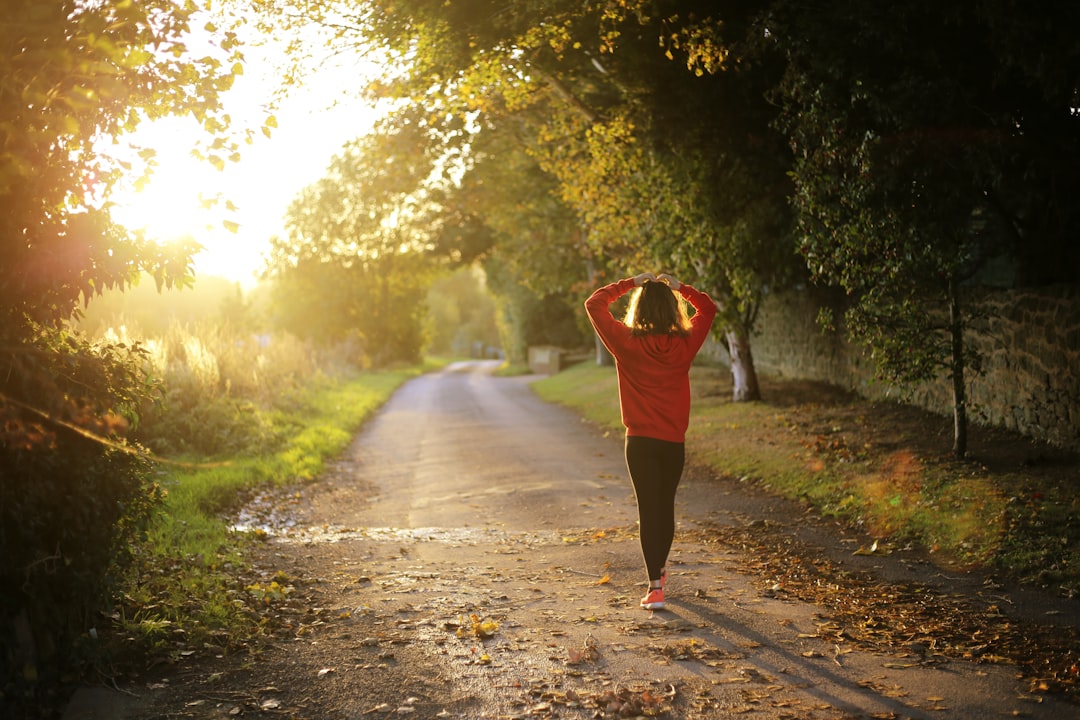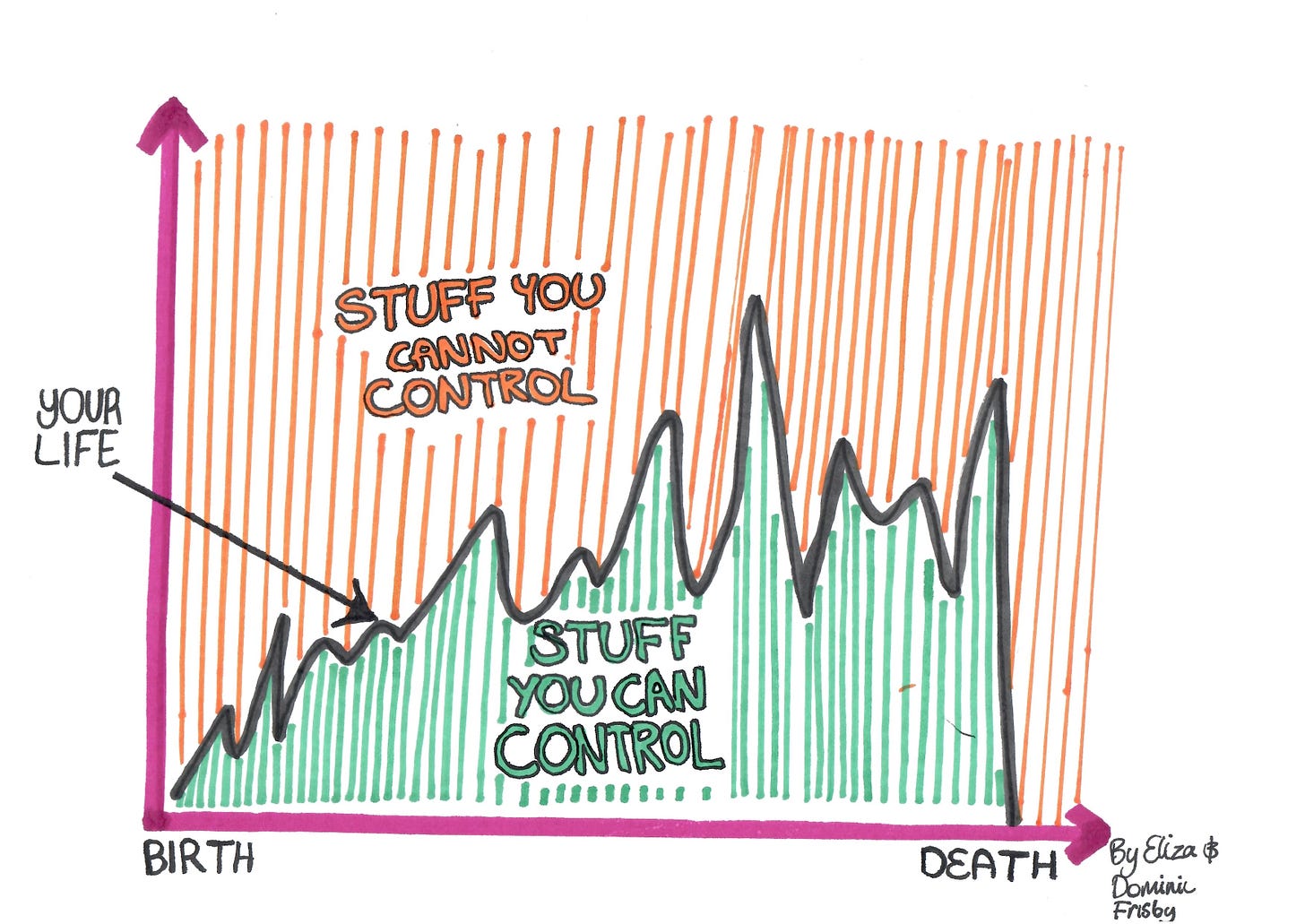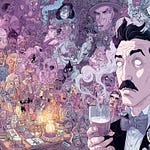I’m as guilty of this as anyone, but many of us make life more difficult than it needs to be. Achieving basic happiness, or at least avoiding what depresses us, might actually be quite simple.
Is happiness, simply, when reality exceeds expectation?
When I was a young man I was chronically ambitious. I would lie in bed as a student, dreaming about my future, making Faustian pacts, yet nothing would satisfy me. You could have offered me fame, glory, wealth, the keys to the city and more, and it would not have been enough. I wanted everything.
When we discussed our futures, my friend, Gideon, gifted and hugely competent, but not remotely ambitious, used to say: “I just want to be happy.” I thought that was loser talk. Looking back, he was probably right.
How often do you watch a film or a show because somebody was raving about it for it to turn out nothing like as good as you were hoping? You end up disappointed. But if you saw the same film with no or low expectations, and it’s pretty good, you might walk away feeling quite elated.
Life is the similar. If reality comes in below expectation then we end up disappointed. If it comes in above expectation then we end up happy. Hence this useful formula:
Reality > expectation = happiness
Expectation > reality = unhappiness
By this formula, then, to achieve happiness you should simply lower your expectations.
There is a lot to be said for that. But then there is also a lot to be said for ambition and optimism, which the mindset of low expectation negates.
Ultimately, this way of thinking boils down to perception. Your life is no different - it’s the same film - it’s just a matter of how you look at it. Thus should we practice gratitude.
Nevertheless, I’m not sure perennially low expectation is a way to live.
We are all animals
Despite what we may think of ourselves, no matter how cultured, we are, when all is said and done, animals.
If you keep a dog, you will know that, to be happy, a dog needs plenty of outdoor exercise and fresh air, regular and proper food, sleep, love and company. Absent any of these and the animal quickly becomes depressed. Human beings are the same. We have certain basic needs without which we end up depressed. The cause of depression is often (not always) the continued absence of one of these basics.
With that in mind, here are seven animal essentials we all need to be happy. If you are depressed, it’s not unlikely one of these is missing in your life. Get it back and you might find other things fall into place. (The problem with depression is that you lose the motivation to do so).
I’m not saying that you can’t be depressed or unhappy, if you have all of these things. You can. But a lot of the time, the cause is that one of these is absent. Get it back in your life, and you will find your depression sorts itself out.
1 Sun
The sun is the giver of all life on Earth, the source of all energy, of light, heat and gravity. Most of us do not get enough of it. We spend too much time indoors under artificial lights.
The darker your skin, the more sun you need - and sun can hard to come by in colder northern European climes - but you need sun, whether you’re light or dark. Our ancestors spent most of the day outdoors. When the opportunity presents itself, get plenty of sun, all over your body. We need sun.
Only use enough sun block to prevent burning. As soon as you can, wean yourself off.
A close family member got herself into the most terrible depressed state last winter. I’m convinced it’s because she did not see sunlight for months, instead lying in bed all day watching crap on her phone.
It’s no accident the sun is often depicted with a smile on his face. Get more sun.
2 Water
It’s as obvious a basic requirement as the sun, yet most of us don’t drink enough.
Got a bit of a headache? Constipated? Feeling stiff? Allergic? Lethargic? Hungry when you know you’re not? Drink a large glass of water.
Just under a pint should do it. That would be pound of water, roughly half a litre. You’ll be amazed how many niggles it clears up.
A large glass of water should be the first thing you drink every morning, when you wake up. And don’t drink it cold. Drink it at room temperature or just below.
3 Food
Two meals a day is plenty. Avoid snacks. Don’t eat crappy, processed food. Avoid seed oils and ingredients the names of which you don’t understand. Use simple foods - meat, fish, veg, fruit - close to their naturally occurring state (ie unprocessed). Spend time preparing food. Ideally, eat with other people - eating should be a shared communal activity. Regular eating times - routines - are good.
And say grace before you eat - it focuses the table, it unifies the group, it expresses gratitude, helps mark where you are and grounds you. Doesn’t matter if you don’t believe in god, saying grace is still a good ritual.
Also, rather than eat crap on the run, skip meals. Fasting is good.
If you are overweight and want to lose weight, fast. The 5:2 diet works and, most importantly, it is sustainable.
But the basic rule is eat regular, healthy meals and don’t eat crap.
4 Exercise
Get plenty of it. I’m convinced exerting yourself and getting your heart pumping cures depression.
Walk, swim, run, cycle, go the gym, play football, play tennis, lift weights, do HIT, ski, do yoga - it’s all good. Do as much as possible outside, so you get sun and fresh air. And drink plenty of water afterwards.
5 Air
As basic as water, food and sun, get plenty of fresh air. Sea and countryside air is better than city. Park air is better than busy street air.
Plenty of exercise will get you breathing properly. Breathe deep.
Breathing exercises are good, though must of us can’t be bothered.
6 Sleep
Get plenty of sleep too. Don’t deprive yourself. We need sleep. The body and mind replenish during sleep. I have many of my best ideas when I’m asleep. I often solve problems in my sleep. It’s because the mind carries on working at stuff you have been thinking about in the day.
Alcohol and drugs affect sleep badly. I drink too much. Most of us do. Try to avoid drinking at home. Fasting is good as, if nothing else, it stops you drinking. Thus fasting improves the quality of your sleep. There’s nothing wrong with going to bed early.
Sometimes I struggle to get to sleep - and that is when the demons come to visit. The best cure for that is plenty of exercise earlier in the day, so you go to sleep tired. Don’t drink caffeine or orange juice after 6pm. Don’t eat too heavily late at night. Don’t shower or bathe just before bed - it will wake you up.
Reading helps get you to sleep quickly too. Don’t look at your phone, computer, TV or iPad for at least an hour before bed. The blue light wakes you up.
7 Companionship
Animals, for the most part, are social. Humans certainly are.
I am an only child and quite a solitary person. But I still need the company of others, be they friend or family. We all do.
Nature designed humans to live in families, large ones. Unfortunately, the modern world - in particular the big state - is destroying that: the state destroys family by eroding its responsibility. For me that is a major factor in the decline of the west. But that is another issue for another day.
Not always possible, but try to live in as big a family unit as possible. The Asians have it right. Your family knows you better than anyone. They know what is good for you and what is not. They monitor you. Humans are happier in family units. Their roles are more clearly defined.
Find a partner to share your life with, someone with plenty of shared loves and interests. Don’t burden them with unreasonable expectations. The waitress test is good: if you have a really bad experience in a restaurant, watch how they treat the waiter or waitress. Because that is how they will treat you when things get bad. Do you want that?
We need friends almost as much as family - they are the next best thing, and they make for a good substitute in the absence of family.
Surround yourself with good people, and people you think are good for you. Hang out with bums and low lives, and you will become a bum and a low life.
What you can control and what you can’t
Most of the above you have some control over, but so much of what happens in your life is beyond your control. You can’t control who your parents are, at what point in history you were born or where, what is going on geo-politically around you.
One example of this, as Malcolm Gladwell observes in Outliers - the Story of Success: neither Bill Gates nor Steve Jobs would have been the men they were if they were born a couple of years earlier or later. There was a cluster of computer geniuses who were all within a one year timeframe that meant they were coming of age at just the point computers were taking off.
Your health is not always within your control. (But you can affect it by eating, sleeping, drinking and exercising well - and getting plenty of sun).
If you are at school or university or work in a large establishment, you cannot control what is happening above you there. Similarly, if you are freelancer, you cannot control what is happening in the broader work place or the economy. You can only position yourself for it. Any stock trader will tell you, you cannot control markets, only react to them.
The loss of a loved one, natural disasters, unforeseen catastrophic events, the talents bestowed on you - there is so much you have no control over.
With that in mind my daughter and I put this ‘graph of life’ together yesterday. The black line is your life. Beneath the black line is stuff you can control, above it stuff you can’t.
I’m minded of the great line from JRR Tolkien’s Fellowship Of The Ring.
“I wish it need not have happened in my time,” said Frodo.
“So do I,” said Gandalf, “and so do all who live to see such times. But that is not for them to decide. All we have to decide is what to do with the time that is given us.”
You can work hard, position yourself, play your hand well, make good decisions, but so much of what happens in life you have no control over. I gather a standard sports psychology, something Sven-Göran Eriksson used to bang on about, is to only worry about what you can effect.
The animal habits outlined above you can, for the most part (companionship is harder), effect.
This is obviously a huge subject, and one I will return to, but I think I’ve banged on enough for one day. When I was in my 20s trying to figure out what I wanted to do with, my father always used to say “There are only two that matter: who you love and what you love” - by which he meant your work. Work, tradition, prayer and spirituality, and their relationship with happiness, are things I would like to explore in another post. But we have enough for now.
















